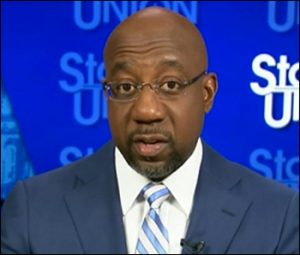
Click on above map to go to interactive version. | 270towin.com
By Jim Ellis — Friday, April 5, 2024
President
Nebraska: Move to Change Electoral Vote Apportionment — With the support of Gov. Jim Pillen (R), a bill in the Nebraska unicameral legislature would change Nebraska’s electoral vote apportionment system, which allows each of the state’s three congressional districts to carry their own electoral vote and change the system to the more common winner-take-all option.
Nebraska and Maine are the two states where presidential candidates win two electoral votes for clinching the statewide vote and one each for every carried congressional district.
The move would help former President Donald Trump in this year’s presidential race, because he is a lock to carry the statewide vote but is the underdog in the Omaha-anchored 2nd Congressional District.
Though Republicans have a large majority in the ostensibly non-partisan state Senate, there is no guarantee the votes will be present to change the system. Doing so, however, would likely deliver an important electoral vote to the Trump candidacy.
House
AK-AL: CLF’s Curious Targeting — The Congressional Leadership Fund, the Republicans’ top House Super PAC, unveiled their first 20 targets for the upcoming general election. Nineteen of the supported candidates are not particularly surprising, but their choice in Alaska’s at-large CD does raise eyebrows. The CLF is supporting Lt. Gov. Nancy Dahlstrom (R) in the top-four contest, even though published research finds that Republican attorney and former candidate Nick Begich fares better against incumbent Mary Peltola (D-Bethel).
In a recently released poll (Data for Progress; Feb. 29-March 2; 1,120 AK-AL likely voters), Lt. Gov. Dahlstrom trailed Begich by 25 points and was 34 points down to Rep. Peltola on the initial multi-candidate ballot test. Once the hypothetical Ranked Choice Voting rounds were simulated, Begich finished at parity with Pelota with each garnering an equal 50 percent share. Therefore, it is curious that the CLF is bypassing Begich to support a weaker candidate.
CA-16: An Apparent Tie — It appears that all votes have finally been counted in California’s open 16th Congressional District and the long anticipated result for the second general election qualifying position has apparently ended in a flat tie. Both San Mateo County Supervisor and former state Sen. Joe Simitian (D) and Assemblyman Evan Low (D-Campbell) each have an unofficial 30,249-vote tally.
If this result becomes final both men will advance into the general election against former San Jose Mayor Sam Liccardo (D) who long ago secured the first qualifying position. This would lead to a three-way general election among a trio of Democrats, a rarity in a top two jungle primary system. The eventual winner of this race succeeds retiring Rep. Anna Eshoo (D-Atherton).
Governor
Indiana: Sen. Braun Continues with Significant Lead — Crossroads Public Affairs, polling for the Indy Politics campaign blog, released a new survey for the upcoming open Hoosier State Republican gubernatorial primary scheduled for May 7. The survey (March 24-25; 500 likely Indiana Republican primary voters) sees US Sen. Mike Braun leading the primary field with a 33-11-11-10 percent margin over Lt. Gov. Suzanne Crouch, businessman Eric Doden, and former Indiana Commerce Secretary Brad Chambers.
While still holding a strong lead, Sen. Braun’s advantage has decreased since the last published poll from Emerson College, which found him posting a 34-7-7-5 percent lead. Therefore, while the opponents have shown some collective gain in the past three weeks, the fact that the challengers are all so closely bunched will allow Sen. Braun to capture the gubernatorial nomination even if he only attains plurality support.






